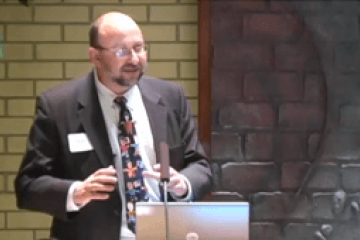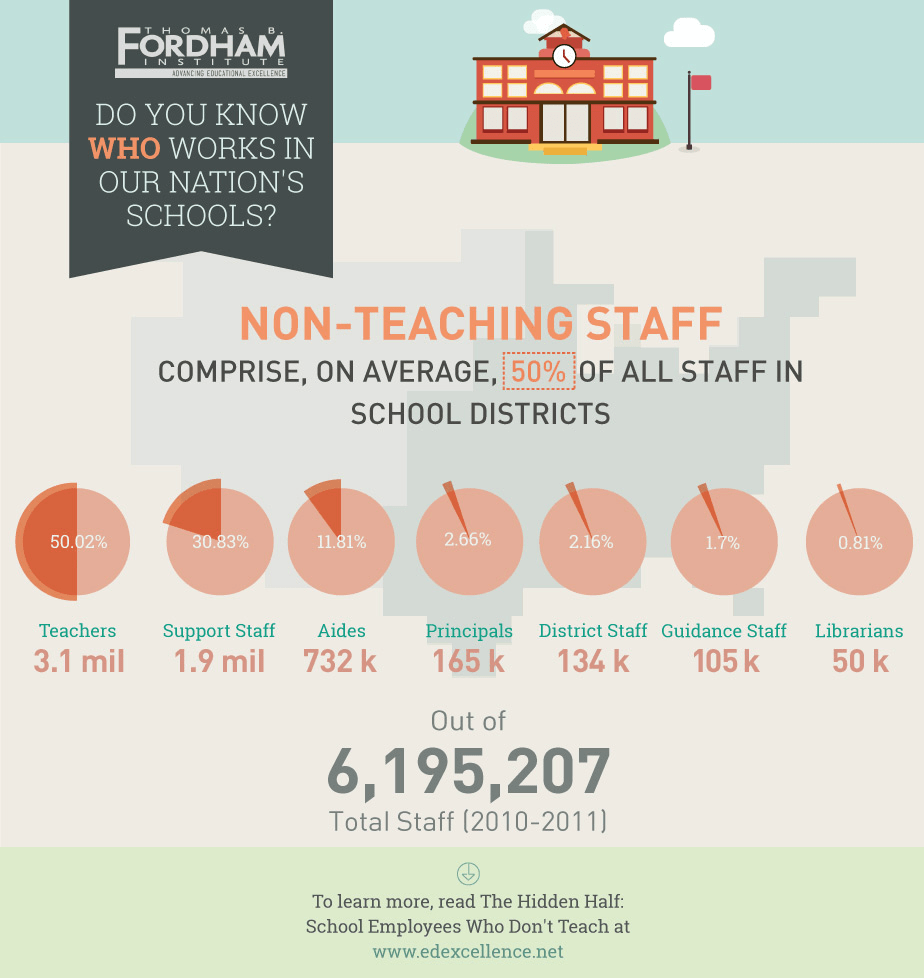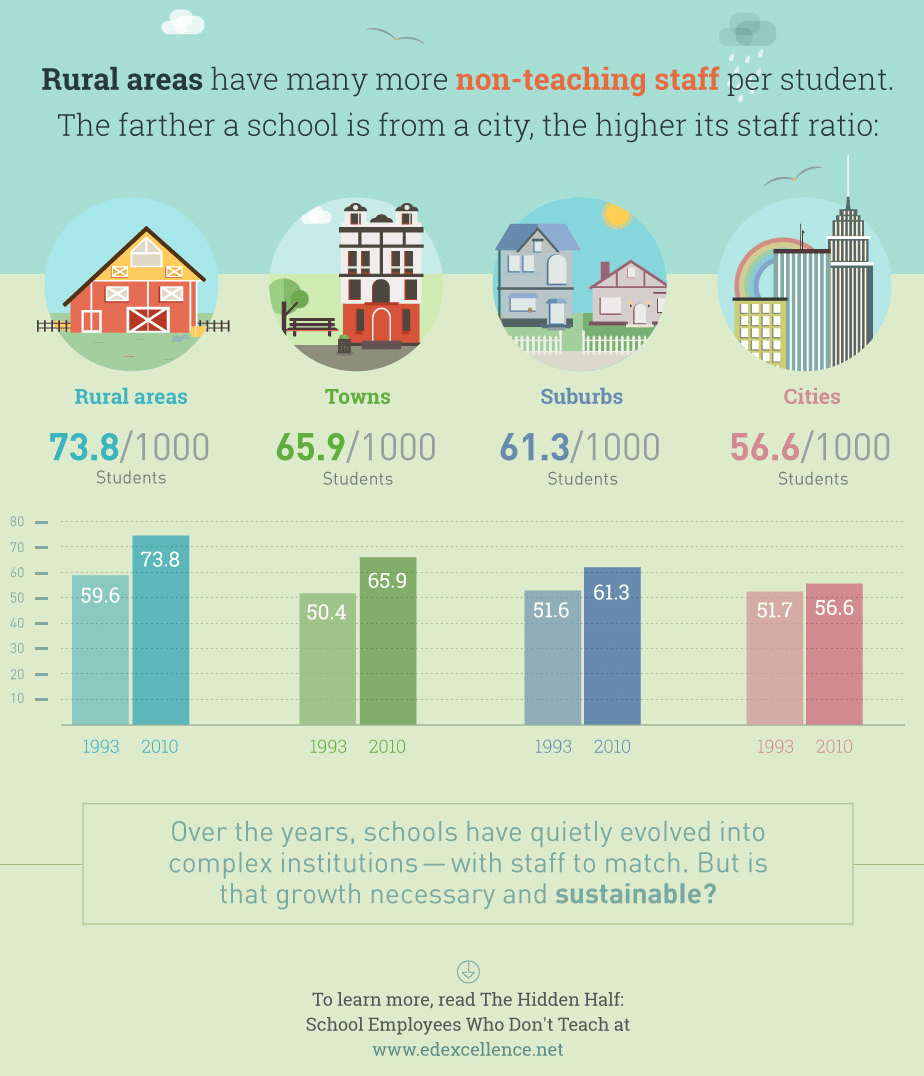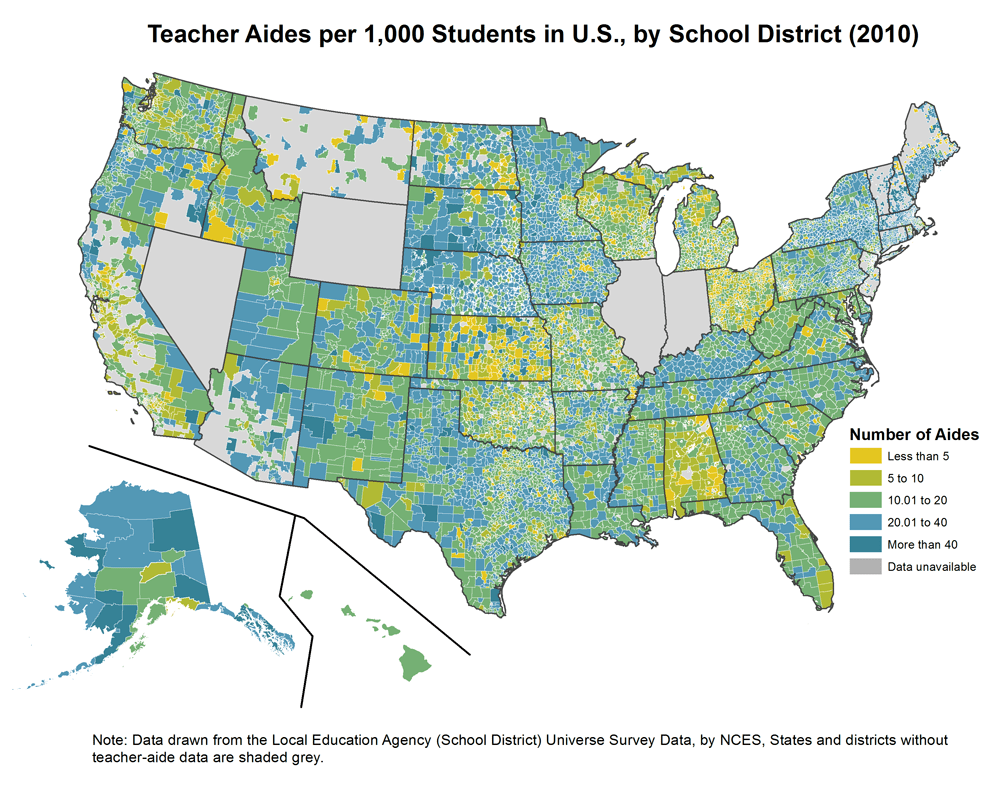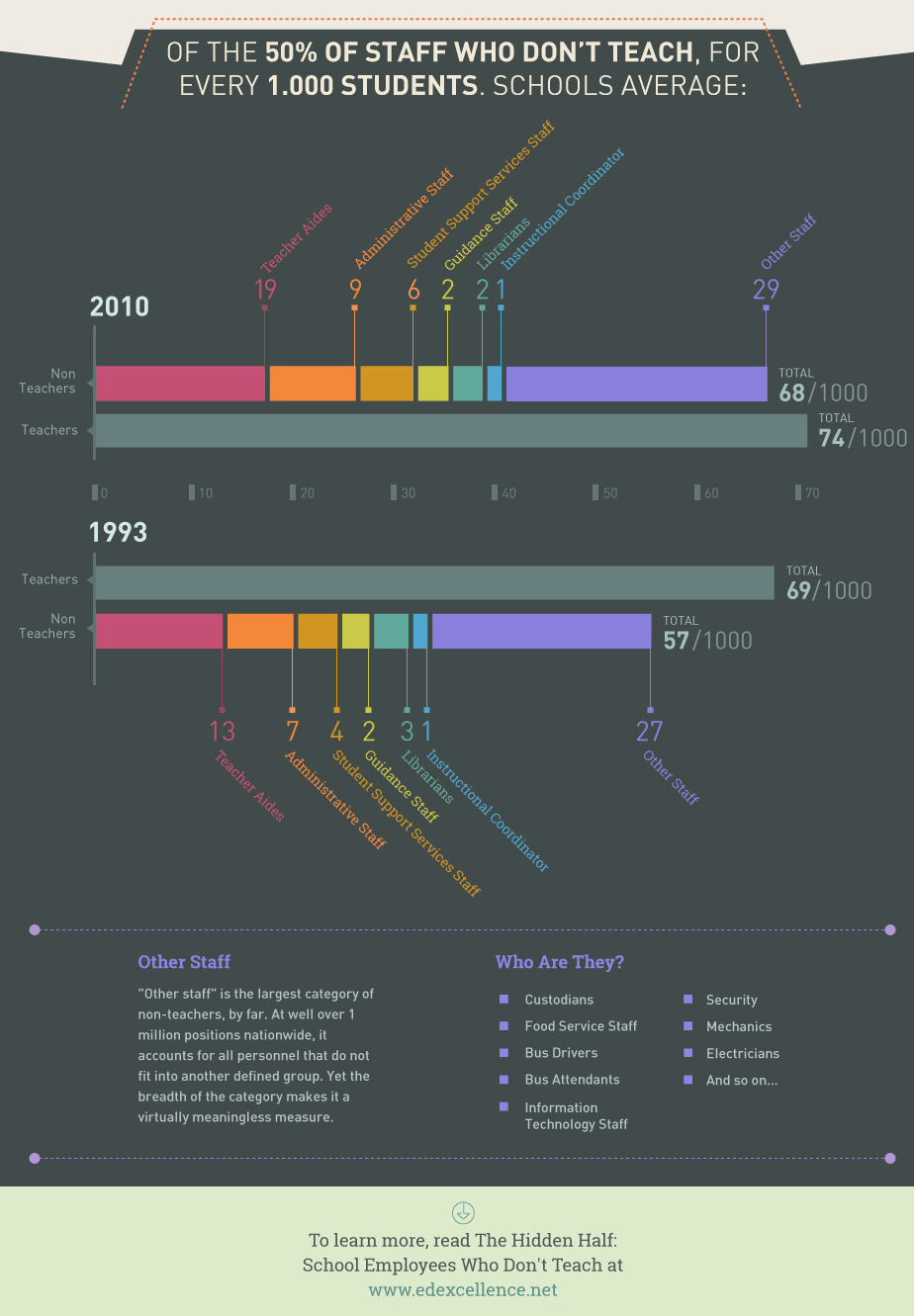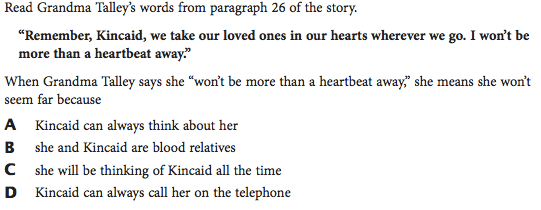Mike and Kathleen Porter-Magee discuss New York State’s half-release of its half-good Common Core test, commend TFA’s diversity surge, and debate the debate about the AP U.S. History Framework. Amber shares a wonky study about teachers’ work hours.
Amber's Research Minute
"New Measures of Teachers' Work Hours and Implications for Wage Comparisons," by Kristine L. West, Education Finance and Policy, Vol. 9, No. 3 (Summer 2014).
Transcript
Mike Petrilli: Hello. This is your host, Mike Petrilli of the Thomas B. Fordham Institute,here at The Education Gadlfy Show and on line at atexcellence.net and now please join me in welcoming my co-host, the Hillary Clinton of education policy, Kathleen Porter MaGee.
Kathleen PM: The Hillary Clinton.
Mike Petrilli: Well I was looking for somebody who's on the rise and has been changing jobs and playing a lot of different roles.
Kathleen PM: I see. I don't think at Fordham I'm taking the Hillary Clinton of education policy as a compliment.
Mike Petrilli: Well look, gee, I think among conservatives she's kind of having a moment right now.
Kathleen PM: All right.
Mike Petrilli: She's distancing herself from President Obama. Look, I think there are several conservatives out there who like her on some issues so I wasn't going for that. I was going as a way of saying, Kathleen's here, she is on her way to her new job being superintendent and chief active officer of the partnership for ...
Kathleen PM: ... inner city education.
Mike Petrilli: ... inner city education. Yeah. Can we talk about that name for a second? Didn't Paul Ryan get in trouble for using that term? Are we allowed to still say inner city?
Kathleen PM: I didn't realize it was illegal. No, so the partnership's been around for like 2 decades so I don't think they were about to change their name thanks to any political whims but I don't know if ...
Mike Petrilli: Yes, I think a little asterisk in there ...
Kathleen PM: Yeah.
Mike Petrilli: ... that could say, just for clarification, we came up with this name back in the 90s when it was okay to still say inner city. I'm confused, are we allowed ...
Kathleen PM: Why is that not okay?
Mike Petrilli: Do you remember this?
Kathleen PM: No.
Mike Petrilli: Paul Ryan said that men in the inner city, their work ethic is not what it used to be or that their work participation is not what it used to be. Anyways he got all this flak for people saying, "Oh that was race baiting," and ...
Kathleen PM: Are we sure that the problem was that he used inner city or was that he said something offensive?
Mike Petrilli: Yes.
Kathleen PM: Maybe.
Mike Petrilli: People talked a lot about inner city, that was code word for ...
Kathleen PM: I see.
Mike Petrilli: Anyway, okay. Here we are. Many of us are feeling pretty sad this week of course about Robin Williams' memorable roles in many ... and many education related roles. Of course Dead Poet's Society.
Kathleen PM: Dead Poet's Society.
Mike Petrilli: Right. But he was also in Good Will Hunting and that had some education angles and other things but we will miss him dearly, but we must go on. The show will go on and we will talk education reform. So Pamela in her last appearance on the Education Gadfly Show before moving to California ... Pamela, let's play Pardon the Gadfly.
Pamela Tatz: New York State just released half of the test questions from the most recent round of the state's common core ELA and math tests. What do you think? Can the state do better?
Kathleen PM: Yeah, so I mean, let's just say first and foremost that New York State has become everybody's favorite whipping post when it comes to common core implementation, and ...
Mike Petrilli: Its' my favorite one.
Kathleen PM: Right, so there you go, exactly. I think New York State deserves credit for working really hard to get things out there early and first, to get the curriculum resources out there, the teachers and to moving to a common core aligned assessment. I think many states are going to have a real rude awakening next year when Park and Smarter Balanced come on line. I think they deserve credit for that for sure.
Mike Petrilli: Um hmm.
Kathleen PM: Yes, but, there is certainly room for improvement. I took a look at especially the ELA tests and it looks like some of the passages are pretty darn good actually. The passage selection is getting better and better. We're using authentic text which I think is great. But some of the questions ...
Mike Petrilli: And by authentic text, you mean actually things from literature.
Kathleen PM: Things you would find in literature, exactly.
Mike Petrilli: Right, not something some grad student wrote ...
Kathleen PM: In order to confirm to ...
Mike Petrilli: ... to meet a certain form.
Kathleen PM: Yeah, the commissioned texts, which were the norm in most reading tests in the past.
Mike Petrilli: Okay.
Kathleen PM: I think they've shown that they're going to use real literary and informational text ...
Mike Petrilli: Yeah.
Kathleen PM: ... not self-created text. As I read some of the questions, I just found myself feeling really disappointed. It just seems like while we're trying to nudge in the right direction, too many of them seem like more of the same. I agree that some of them were confusing. I really didn't think they were pushing for the kind of evidence based literary analysis that we want our kids to be doing. So, from a signaling perspective, I just don't think these questions are quite getting us where we want to be.
Mike Petrilli: So I have been skeptical. I mean you are hearing a lot of these horror stories from teachers and others about the test and my own view is I have yet to understand why New York decided to rush ahead with its own test right? Here is Park and Smarter Balanced spending 3 or 4 years, hundreds of millions of dollars developing these tests. We hope that's going to result in these great tests. We will be finding out soon. It just seemed like, wow, New York, on an incredibly tight time line, incredibly tight budget, was going to do it by themselves. It sounds like they've done, as you say, better. They deserve credit for that, but I don't understand why they just didn't have the patience to say, let's just wait for Park.
Kathleen PM: You know, there's two sides to that though. Waiting for Park, then you're asking your teachers to shift and teach to new standards but you're assessing old standards.
Mike Petrilli: Yeah, I know.
Kathleen PM: I mean, honestly there's no really good answer in this sort of middle ground implementation before the assessments come on line.
Mike Petrilli: It is an awkward phase. It's like there's no good answer to being a teenager. I mean you just have to get through it.
Kathleen PM: Yes.
Mike Petrilli: I will say in the states that have waited, if you look at California, look at Maryland, these other blue states that are similar politically to New York, they don't have a backlash to the common core.
Kathleen PM: Yeah.
Mike Petrilli: They're not on fire. Look, I think you're right, we'll find out a year from now and we’ll talk about how it's going in those other states and whether ...
Kathleen PM: Did they just delay the pain or did they avoid it?
Mike Petrilli: Exactly.
Kathleen PM: That remains to be seen.
Mike Petrilli: Well said. Okay, topic number 2 Pamela.
Pamela Tatz: TFA is more diverse than ever. Half of the 5,300 new recruits identify as people of color marrying the demographics of our school age population as opposed to a mere 17% of the nation's teaching force as a whole. This is great for TFA, but how can we increase the diversity of US teachers in general?
Mike Petrilli: Right, or put this a different way Kathleen. Why can't Ed schools do this too?
Kathleen PM: I don't know how much of an effort they're put ... TFA has made this a real central part of their mission and I think you have to be that deliberate about it. There's no way diversity is going to magically increase. It has to be a goal and it has to be one of your top priorities, otherwise I don't think it's going to happen; and I just don't know, have Ed schools made it as much of a priority as TFA? [crosstalk 06:32]
Mike Petrilli: Other people say, look, bottom line is Ed schools don't recruit right?
Kathleen PM: Right.
Mike Petrilli: I mean they are just very passive, as ... look, as are most programs in colleges. They get who they get and so they continue to get mostly white women from the suburbs and small towns, that's what they're getting except for a handful of programs in big cities. What's your take on this though Kathleen, some people would argue why are we even focusing on race, why does it matter, why not just focus on teacher effectiveness? What's your take on this? Is it important to have a diverse teaching staff?
Kathleen PM: I think so. Yeah, definitely. I think that especially because some of our neediest students are students of color and they're students from disadvantaged neighborhoods and I think if you only have white middle class women does a disservice to those communities. People really do respond to role models and also it's hard for us to know our own blind spots. It's important to have, not just diversity of color, but diversity of thought. I think one way to get to that diversity of thought and idea is to have other kinds of diversity as well.
Mike Petrilli: Yeah, there's been some interesting studies. Education Next has published a few that show that look, all else being equal, kids do better, African American kids do better, with African American teachers.
Kathleen PM: You can understand, I mean it makes sense. We even say that in white middle class communities, we want to see more male kindergarten teachers because we think boys respond to male role models. Why would it be any different for students of color.
Mike Petrilli: Yeah, yeah. I will say, my 4-year-old Leandro passed his first belt test in karate this last weekend ...
Kathleen PM: Nice.
Mike Petrilli: ... which involved breaking a board. I'm pretty sure that this was some kind of trick board that had some kind of seam in it ...
Kathleen PM: That's pretty bad.
Mike Petrilli: ... because they just stomped on it and it broke and believe me, something was going on there with those boards because this was not a very strong stomp. Anyway, the teacher is this man and I just see the way that he responds to that guy versus how he's responded to some of his female teachers. It is different.
Kathleen PM: Yeah.
Mike Petrilli: It’s ... all right so.
Kathleen PM: Well even for actually girls. When I see my oldest daughter, I would love for her to have role models, particularly in the early elementary age who are men as well, to see that ... to give a different impression of what sort of male gender roles are.
Mike Petrilli: Yes.
Kathleen PM: I think it's important for everybody.
Mike Petrilli: Yeah, okay. Topic number three Pamela.
Pamela Tatz: The RNC just piled on to the growing push back against the college boards AP US history framework and the college board has now promised to clarify the framework. Will this response work?
Mike Petrilli: So Kathleen, finishing up your tour of duty at the collage board. I know you're ... I'm not asking you to speak on behalf of the college board, but wow, this quickly became a big controversy, got somewhat linked to the common core controversy, a lot of the same groups pushed back against this. On this one though, we've looked at the AP history framework that came out in 2012, and I thought there were some legitimate concerns about it. What's your take on all this?
Kathleen PM: Yeah, so it's really interesting. I was able to dive deep into the weeds and to work our head of AP and to work with David and to really understand because when this controversy started brewing, I hadn't been as involved in the development of this stuff so I didn't know as much about it, which was nice, I got to look at it with fresh eyes. It's interesting, a couple things. First of all the framework does not exist in a vacuum.
Mike Petrilli: Yeah.
Kathleen PM: The framework is one piece of many that AP history teachers use and it's actually far more comprehensive than what they had in the past. In the past there was I think a 4-page document that was literally a bullet list of a couple of things that included very few people. This new document is trying to give a much more holistic picture of US history. In addition, it's not the only thing. It is paired with the US history assessment which AP US history teachers have always had access to. They use it to drive their instruction, they use it to drive their assessment. I'm glad that the college board made the decision to release the assessment.
Mike Petrilli: Um hmm.
Kathleen PM: I think it is ... for me, when I read the framework, I thought, okay this is solid but what else, and when I read the assessment, I said this is exactly the kind of thing that I would want to use to drive teaching and learning in a US history classroom.
Mike Petrilli: What were the complaints, that it was what ... that there wasn't enough focus on the founders, that there wasn't focus on heroes in American education, in US history?
Kathleen PM: Yeah, I think that many of the critics felt that it was portraying a negative image of the United States and of American history and it didn't put enough focus on great leaders, again the founders and great leaders in American history.
Mike Petrilli: Now there were a couple criticisms that I thought were totally unfair. For one, they wanted to tie this to David Coleman ...
Kathleen PM: Right.
Mike Petrilli: ... who of course was one of the architects of the common core, but this was done before he got to the college board, so okay, that one doesn't work so well. The second one was, I remember the American Principles Project saying something about how it wasn't appropriate for this ... who does the college board think they are to select which topics in history kids should learn? Okay, they've been doing this for 50 years. There's a test, you've got to figure out what's going to be on the test. Unless you want to get rid of the AP program, you're going to have to do that.
Kathleen PM: Right, I mean you have to get specific if you're going to have a core set of tests aligned to it. What I'll say, so the AP US history has been in development long before David took over, but what David has brought to the college board is a promise of transparency and I think that's what you're seeing now with the release of the AP US history test which has never ... I mean that's more transparency that we've seen from the college board in the past; and the promise of real clarification in the future. I think he's making good on the promise of transparency and I think critics will be happy with what they see.
Mike Petrilli: Yeah, that's good. I think it's fair and people raise fair points and there was plenty. I will say this, I would bet a lot of money that you will get a much more traditional view of American history from your US AP history course than if you took US History 101 on any college campus in America.
Kathleen PM: Absolutely, yeah. There's actually a lot of ... so AP US history teachers, they actually create their own curriculum that is aligned to the framework and there are some samples up on the college board website and there are more that teachers are developing all the time. This is real opportunity here for AP US history teachers on the right to develop a framework that they think really embodies the principles of American history and to put that out there as exemplars.
Mike Petrilli: All right, that is all the time we've got for Pardon the Gadfly. Now it's time for everyone's favorite, Amber's research myth. Amber, welcome back to the show. Amber is sad, sad days here with the Robin Williams news. Was there a performance of his that you particularly liked.
Amber Northern: Thank you Mike.
Mike Petrilli: Amber is sad, sad days here with the Robin Williams news. Was there a performance of his that you particularly liked.
Amber Northern: It had to be Mrs. Doubtfire. [crosstalk 13:02]
Mike Petrilli: Oh, I didn't see you go for that.
Amber Northern: Come on, really. He was just magnificent in that, and the outfit. It still makes you smile when you see him in that getup. Yeah.
Mike Petrilli: It was a great movie.
Amber Northern: Oh, fantastic.
Mike Petrilli: All right. Well Amber, what do you have for us this week?
Amber Northern: We got a new paper out by Christine West. She seeks to settle the question of exactly how many hours teachers work which seems like a simple question, but it's a little more complicated. We often hear that teachers work late into the night grading papers, they stay late after school to help kids, they work weekends. We recognize this as former teachers. Then other people say, well yet, they have the summers off, so it all kind of balances out. Anyway, the data hadn't been great to answer this question so far. So, she uses a new data source, well new to answer this question. It's called the American Time Use Survey, it collects data on how Americans spend their time via a time diary. Individuals are periodically asked about all their activities over a 24-hour period beginning at 4 a.m. on the day prior to the survey, so the data don't rely on recall so they're more reliable.
Mike Petrilli: Okay.
Amber Northern: All right, she goes and uses the diary data for full time teachers and non teachers from 2003 to 2010. Bottom line, teachers work an average of 34.5 hours per week annually, translates to 38 hours a week during the school year ...
Mike Petrilli: Okay.
Amber Northern: ... 21 hours during the summer.
Mike Petrilli: Hmm.
Amber Northern: Non teachers work 40 hours most of the year and 38 in the summer. The summer by the way, that average includes teachers who may be working in year round districts, districts in which the school year stretches into June and starts in August and includes teachers taking PD in the summer or teaching summer school. Okay?
Mike Petrilli: Okay.
Amber Northern: Second, West finds that when hours are properly accounted for, high school teachers earn 7-14% less than their demographically similar workers at other occupations. That's in part because high school teachers are more likely to work in the summer, since more secondary kids attend summer school. Yet, elementary, middle and special education teachers earn slightly higher wages than their demographically similar workers. Finally the report finds that teachers are more likely than most any other occupation; nurses, computer scientists, financial analysts, doctors, sales reps, like a ton of them; to over report work hours when diary data are compared to other report sources.
Anyway, bottom line is she ends up talking ... a quite nice discussion at the that says, you know, this is yet another reason why we don't need the single salary schedule ...
Mike Petrilli: Um hmm.
Amber Northern: ... especially when secondary teachers have different work schedules, different responsibilities.
Mike Petrilli: Well, that's fascinating because isn't the history of why we have these master's degree pay bumps was because that was a way to get more money, more higher salaries to secondary school teachers.
Amber Northern: Um hmm.
Mike Petrilli: It was mostly high school teachers who were getting master's degrees. Now, those were also mostly men so it was also a gender thing where we're going to pay the male teachers more than those female elementary school teachers, but it does sound like ... so you could say, well there is a differential, then. There is some evidence that those high school teachers should be getting paid more.
Amber Northern: Now, you've got these 5-year master's programs where a lot of those elementary teachers go straight through and get their master's so we're not seeing a big difference between the master's degree holders.
Mike Petrilli: Interesting. Is this ... do these numbers seem about right to you guys? I mean those really sound low.
Amber Northern: Yeah, the summers yeah. [crosstalk 16:27].
Mike Petrilli: [crosstalk 16:27] take this image of teacher's working 50-60 hours a week.
Amber Northern: I guess the summer is quite of interesting because that's what they were saying. Teachers, it's impossible to report ... consider your yearly work average when you've got to figure out the summer, so that's why I thought the report was fascinating.
Mike Petrilli: Yeah.
Kathleen PM: Yeah.
Amber Northern: It tries to actually put a number on it. If you really do work in the summer, it's just hard to figure out how much of that time is spent.
Kathleen PM: I think it's a challenge to average any of this right? You've got how many, 3 something million teachers and this is the average, so that means you have some teachers who really are slamming it the way people say, that teachers can; and you have others who probably are working, well obviously, are working less than the average.
Mike Petrilli: Also, this note that teachers have the summers off. I would suspect that those teachers who are parents would disagree with you that the summers aren't "off".
Amber Northern: Right.
Mike Petrilli: They are home with their own kids all summer long.
Amber Northern: Right.
Mike Petrilli: They may end up wanting to go back to school in the fall just like everybody else.
Amber Northern: Yeah. Another thing that's sort of hard about this is a lot of teachers get paid over the full year ...
Mike Petrilli: Yeah.
Amber Northern: ... so they may be reporting weeks that I'm paid, not weeks that I work. I don't know. [inaudible 17:32] all these reasons why this is really hard to figure out. I don't know, it's kind of a wonky little study but it's a neat measure and I think it was kind of cool.
Kathleen PM: And it provides new information. It's interesting.
Amber Northern: Yes, yes.
Mike Petrilli: Lovely. All right Amber, thank you for bringing wonky but cool. That is all the time we've got for today. Until next week.
Kathleen PM: I'm Kathleen Porter Magee.
Mike Petrilli: And I'm Mike Petrilli at the Thomas B. Fordham Institute, signing off.



